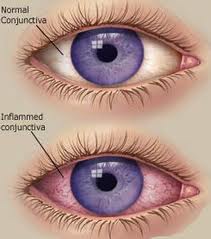 Our eyes are vulnerable to viral, bacterial, fungal and parasitic infections. Take note, learn about them and other treatable problems including dry eye syndrome and computer vision.
Our eyes are vulnerable to viral, bacterial, fungal and parasitic infections. Take note, learn about them and other treatable problems including dry eye syndrome and computer vision.Most of us will experience temporary eye problems from time to time, that which includes itching, blurriness or fatigue which varies during our lifetime years from childhood until we grow old. Most likely, many of these eye problems may perhaps last shortly and will probably end voluntarily on their own without any varied complications.
However, if a sudden eye problem occurs and will last for more than a couple of days-this then will give you the advance directive to have your eyes checked and be medicated by an eye doctor.
The following are some lists of the most common types of eye problems:
• Eye Twitching - eye twitching or (myokymia fasciculation) is a usually benign muscle twitch that occurs and usually affects the lower eyelid.
• Spots and Floaters - these are tiny spots, specks, flecks and or commonly termed as "cobwebs" that drift aimlessly around in your field of vision.
• Styes - a small bump that may appear inside or outside of the eyelid which is usually caused by infection of the hair follicle of an eyelash or an eyelid oil gland clogged from excess oil, debris or bacteria..
• Pink Eye/Conjunctivitis - is an inflammation or infection of the transparent membrane known as conjunctiva, the tissue covering the eye and inner surface of the eyelid.
• Blepharitis - ocular condition characterized by chronic inflammation of the eyelash follicles, along the edge of the eyelid.
• Uveitis - refers to the swelling and irritation of the uvea, ( the middle layer of the eye) or in common usage may refer to any inflammatory process involving the interior of the eye..
• Eye Herpes - is an infection of the eye caused by the herpes simplex virus, also known as ocular herpes and herpes keratitis.
Read more at http://www.wrongdiagnosis.com/e/eye_herpes/intro.htm?ktrack=kcplink
.
Read more at http://www.wrongdiagnosis.com/e/eye_herpes/intro.htm?ktrack=kcplink
Comments
Post a Comment